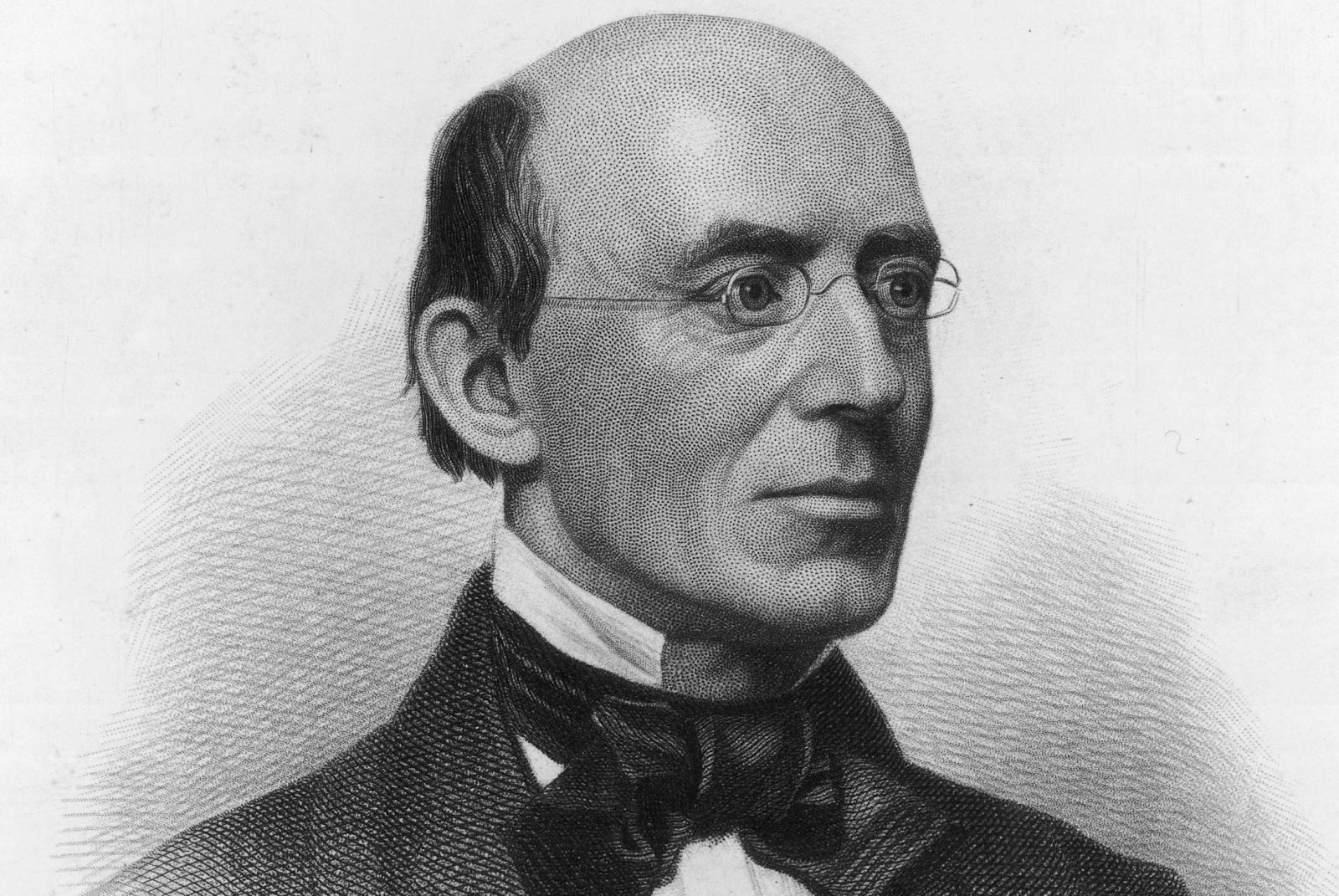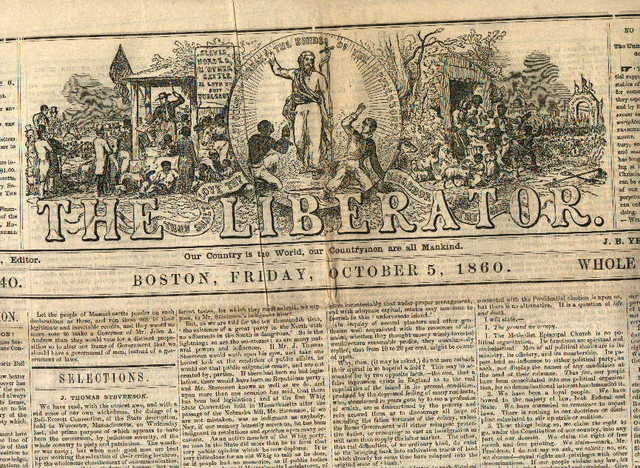Studying the history of journalism and understanding the lives of journalism historians is vitally important to our job as current day, aspiring journalists. The journalists who paved the way for us are the ones who discovered and improved upon a mass media system that has lasted through the years. One of the most influential journalism historians is William Lloyd Garrison, an American journalist in the 1800s.
Garrison is/was a prime example of just how influential truthful, passionate journalism can (and is supposed to) be. Through his work, Garrison brought light and attention to the people and stories that needed to be told the most. I was fascinated to learn about Garrison and his work because, in my opinion, his work and legacy is exactly what journalism is all about.
William Lloyd Garrison
William Lloyd Garrison was primarily active and best known for his work during the Lincoln administration. Garrison was a powerful, outspoken journalist who dedicated his career to speaking out against slavery and later publicly supporting women's suffrage.
Garrison was the co-editor on The Genius of Universal Emancipation, a publication that was publicly anti-slave and spoke out against slavery. Garrison worked with Benjamin Lundy, a fellow American abolitionist, who was the founder of The Genius of Universal Emancipation.
The front page of an issue of The Genius of Universal Emancipation
Later in his career, Garrison went on to publish his own newspaper titled
The Liberator in 1831. The newspaper was based out of and published in Boston, Massachusetts. The first issue of The Liberator was dated January 1, 1831 where Garrison made his views extremely clear in
this opening quote:
"I will be as harsh as truth, and uncompromising as justice...I am in earnest, I will not equivocate, I will not excuse, I will not retreat a single inch, and I will be heard."
Garrison's primary motivation was to shift the beliefs of those who were purchasing and those who owned slaves.
A section of the front page of an 1860 issue of The Liberator
Garrison wrote on his beliefs throughout The Civil War, literally up until the end in 1865. With 1,820 issues published,
The Liberator came to an end in December of 1865. Garrison didn't stop when the war was over. Garrison directed his attention towards women's suffrage and pacifism. He argued that women should be able to hold leadership positions in abolitionist organizations.
Up until the very end of his life, William Lloyd Garrison spoke out in support of what he believed in and spoke out against what he didn't believe in. Garrison's writing and efforts were supported and equally hated, but his positive efforts proved to be much more effective.
Woman Suffrage Parade 1915
Garrison spent his life and career writing and fighting for what was right. He did the job of a true journalist. He never backed down from his opinions and never failed to let his opinions be heard. He refused to be silenced by those who disagreed. He sought out the truth and told it without shame or hesitance...something that I think we as journalists today can learn from and should all be reminded of.
William Lloyd Garrison









No comments:
Post a Comment